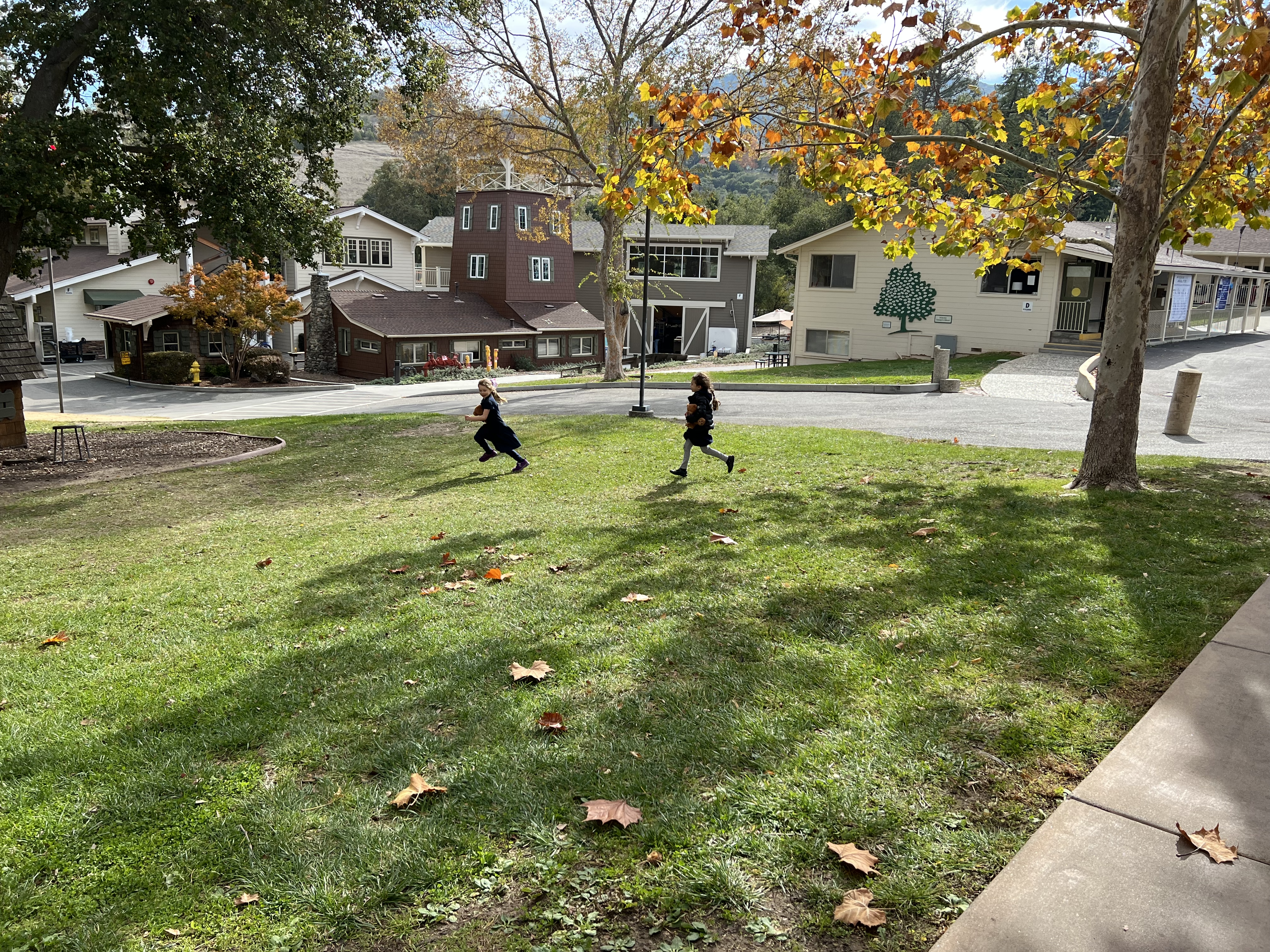

By Matt Callahan, Associate Director of the Scott Center for Social Entrepreneurship; Ilsa Dohmen, Director of Teaching and Learning; in conversation with Amy Hand and Annie Makela
In a year unlike any other, a collaboration between middle school educators at Hillbrook and the Scott Center for Social Entrepreneurship continues to evolve a cornerstone program: Reach Beyond Block. While we have all experienced challenges due to COVID-19, along with some unexpected benefits, this evolution of RBB is not a result of COVID-era shifts to remote learning or hybrid pedagogy, but rather the result of an intentional and long-term drive to empower our students to reach beyond themselves and make a difference in the world by realizing a deeper engagement of the world through a more profound understanding of the complexities present in every issue.
Middle School Reach Beyond Programming at Hillbrook School
Hillbrook’s Vision invites students to “reach beyond themselves to make a difference in the world.” At a time when students cannot physically reach beyond the gates of our campus, Hillbrook learners and educators are deepening their engagement with the world through a different approach to the Reach Beyond Block (RBB). In our fall cycle of RBB, students took a deep dive into the timely issues of anti-racism – in the wake of a tumultuous summer of civil action – and the general election. Groups had a variety of offerings such as, “The Popular Vote vs. The Electoral College: What’s More Fair?” and “Collective Action for Black Civil Rights”, in which they built expertise and were guided through complex issues, those both familiar and unfamiliar. Building on the skills and interests we established this Fall, our current cycle of RBB extends students’ engagement with current, complex issues that they and their peers care about using a framework for processing current event media, connecting to self and other, and then translating their thinking into informed action.
Each week during the second cycle of RBB, students and teachers bring media on topics they care about – from COVID vaccination schedules, to public sports and recreation opportunities, to laws surrounding social media site filtration – to the table. Instead of asking students what they “think” right off the bat, teachers probe what individuals feel, have heard, believe, and want to know. We research, watch, read, and discuss to uncover why each of these topics is complex – because it places our values and perspectives in tension with others that are equally valid, but held to varying degrees of importance. For example, students in one sixth grade cohort noted last week that social media filtration largely comes down to the value of free expression and the value of taking care of others. By hearing from experts, then each other, students start to see that various arguments may be equally valid but reflect different priorities. What we each choose to prioritize can be based on our own background and lived experiences, and is only made stronger through examination of other viewpoints.
After hearing from multiple sides and reflecting back inward, students are poised to take action based on their current thinking. The Reach Beyond Action Menu gives a set of extension ideas for them to transform their ideas to impact by researching, advocating, and creating. Students familiar already with our Six Pillars of Social Entrepreneurship, can follow the tags on each concept to select one in a mode they prefer. One might choose a mode in which they feel a certain strength or one about which they would like to learn more. Students work independently or together, then share their work with peers and beyond. In a cohort last week, two students who strongly disagreed about the appropriate role of monitoring social media usage with students chose to act by co-writing a song in which they invited the sharing of their two sides. Lyrics included “… We’re here to talk about our points of view… content on the web shouldn’t be taken down… I think it should be taken down if it’s harmful or r-u-u-u-de…”
This approach has been a thoughtful, years-long effort and reflects the collaboration that lies at the heart of the curriculum design process at Hillbrook. Moreover, this new RBB curriculum continues to invite students to transfer their knowledge to create, innovate and imagine, while providing a rigorous background of understanding from which to draw. Indeed, in this model “reaching beyond by reaching deeper” has become a model of flexibility and responsiveness, while also insisting on a rigorous academic base of knowledge. This – a rigorous intellectual engagement paired with flexibility and creativity – as many social impact leaders have long known, is the key to truly making an impact.
In the end, sometimes reaching beyond means simply reaching deeper—listening more closely, looking within, and trying to find the better argument, all without leaving your stable cohort.
The Scott Center for Social Entrepreneurship’s Vision: to inspire all learners to see the world as it is, imagine what it might be, and partner with communities to realize long-term impact for people and the planet.
Learn more about the creation of this year’s RB program through the following resources, which informed our process:
- Alison Park at Blink Consulting provided essential vocabulary around “uninformed certainty” and how to prompt students to reflect critically.
- The Better Argument Project claims that American civil society would benefit from more and better arguments. These arguments rely on exposing historical context, developing emotional intelligence, and recognizing power imbalances.
- Close Up Foundation provided indispensable professional development advocating for an issue focus when teaching civics, rather than a candidate approach.
- Leadership + Design furnished discussion questions and activities exploring the intersection of design and democracy.
